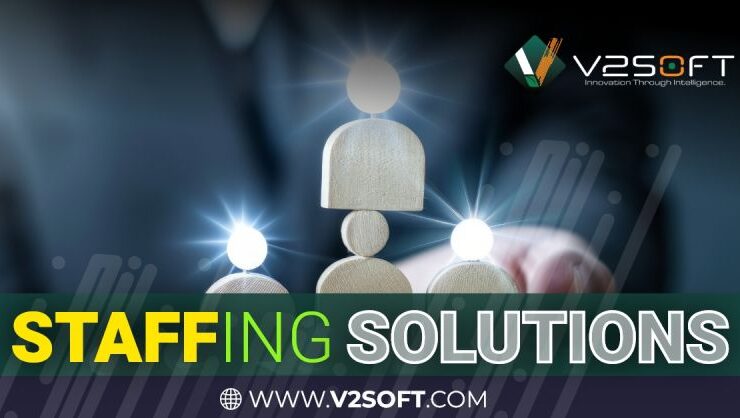Introduction
In today’s technology-driven world, businesses of all sizes rely heavily on IT systems to run their operations smoothly. However, finding the right talent to manage and support these systems can be a challenge, especially as the demand for skilled IT professionals continues to rise. IT staffing services play a crucial role in helping organizations navigate these challenges by providing access to highly qualified talent for both short-term projects and long-term roles.
This blog will explore the importance of IT staffing services, the benefits they offer, and how emerging trends such as AI and flexible staffing models are transforming the industry.
The Growing Demand for IT Staffing Services
As digital transformation accelerates across industries, the need for specialized IT skills has surged. Companies require experts in areas such as cloud computing, cybersecurity, software development, and network management to keep pace with technological advancements. The rapid evolution of these technologies, combined with the shortage of skilled workers, has made IT staffing services an essential resource.
Staffing providers can help businesses fill critical IT roles quickly, ensuring that companies can maintain productivity and continue to innovate. Whether it’s a short-term project or a permanent position, IT staffing services ensure that businesses can access the right talent when they need it.
How IT Staffing Services Work
IT staffing services typically involve sourcing, screening, and placing qualified IT professionals with companies in need of specific skills. These services cover various models, including:
Temporary Staffing: For project-based work or to cover short-term needs such as employee absences or peak workloads.
Contract-to-Hire: A flexible option where employees are hired on a contract basis with the possibility of permanent employment based on performance.
Permanent Placement: For companies looking to fill long-term, full-time IT positions.
Staffing firms work closely with businesses to understand their needs and match them with candidates who possess the required technical skills and cultural fit.
The Role of AI in IT Staffing
The integration of AI in staffing services is transforming the way companies find and hire IT talent. AI-powered recruitment tools can analyze vast amounts of data to identify the best candidates based on job descriptions, required skills, and company culture. This helps streamline the hiring process by reducing time spent on manual screenings and improving the quality of hires.
AI can also help predict staffing needs by analyzing trends in technology and business growth. For instance, if a company is scaling its IT infrastructure or adopting new software, AI can help determine the types of roles that will be needed and when.
Addressing Staffing Shortages
Staffing shortages are a major challenge in the IT industry, particularly in areas like cybersecurity, data science, and cloud computing. As companies face increased competition for top talent, IT staffing services provide a solution by tapping into a broad network of professionals who may not be actively searching for jobs but are open to new opportunities.
Staffing shortages can slow down business operations, delay project timelines, and increase the risk of security vulnerabilities. By leveraging IT staffing services, businesses can ensure that critical positions are filled quickly, reducing the impact of these shortages on operations.
Empower Recruitment: A New Approach
Empowering recruitment is about adopting a strategic approach that prioritizes not only technical skills but also cultural alignment and long-term fit. Empower recruitment strategies leverage data, technology, and flexible staffing models to attract top talent and ensure that the right candidates are placed in the right roles.
By focusing on both hard and soft skills, empower recruitment ensures that IT professionals can collaborate effectively within the company’s environment, contributing to overall business success.
Flexible Staffing Models: Contract to Hire
One of the most popular staffing models in the IT industry is contract-to-hire staffing. This approach allows businesses to bring in IT professionals on a temporary basis with the option to offer them permanent roles based on performance. This is particularly useful for companies that want to evaluate candidates in real-world scenarios before committing to a full-time hire.
Contract-to-hire staffing provides flexibility for both the employer and the employee. Employers can assess a candidate’s skills and fit within the company, while employees get the chance to experience the company culture and work environment before making a long-term commitment.
Workforce Management Services
In addition to sourcing IT talent, many staffing firms offer workforce management services to help businesses optimize their staffing strategy. These services include everything from payroll and compliance management to employee training and development. Workforce management ensures that companies not only hire the right people but also manage them effectively to maximize productivity and engagement.
By using workforce management services, businesses can streamline their operations and focus on core activities, knowing that their staffing needs are being handled by experts.
Conclusion
As the demand for IT talent continues to grow, businesses must adopt innovative solutions to attract and retain skilled professionals. IT staffing services provide a flexible, efficient way to meet these challenges by offering access to a wide network of qualified candidates, empowering recruitment processes, and leveraging AI to enhance hiring strategies.
By partnering with an experienced IT staffing provider, companies can ensure they have the right talent to drive innovation, overcome staffing shortages, and achieve long-term success.
